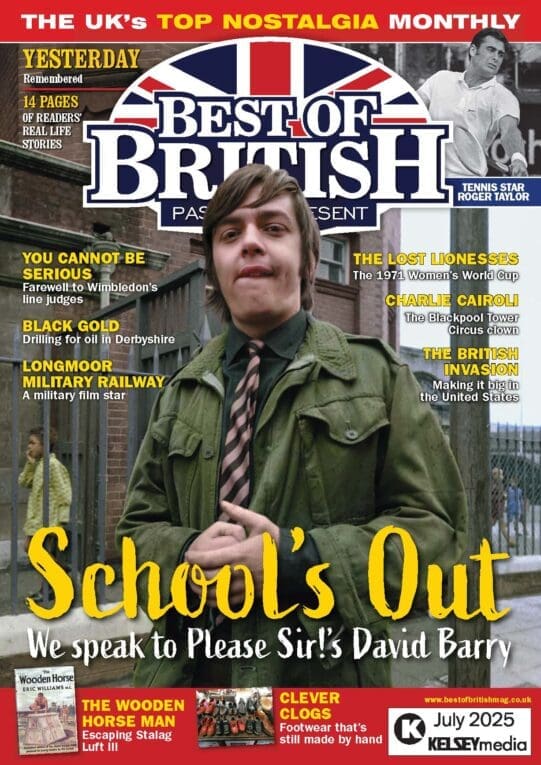In the autumn of 1938, I started work at ICI at Blackley, Manchester, for £1 a week. I was what is now known as a management trainee, but my initial job was as an office boy, delivering mail around the offices and wax cylinders to the typing pool.
Another job was to carry the very heavy typewriters down from the typing pool to the mechanics’ workshop for servicing. We decided that carrying such heavy weights down two flights of stairs was much too much, and lots were drawn to decide which of us should do the unthinkable. It fell to me, but I would never have guessed into how many pieces a typewriter would break when dropped on a concrete staircase. We never had to carry them again!
My friend Ted Croft, whose father was works manager at Blackley, and I decided that the time had come when we ought to acquire at least a smattering of social graces and we enrolled in dancing classes, at 2s 6d a lesson. With the outbreak of war I don’t think either of us had much opportunity to test our skills.
Enjoy more Best of British Magazine reading every month.
Click here to subscribe & save.
The war came in early September and, in accordance with the requirements of my OTC certificate A, I wrote to the War Office offering my services. I was instructed to attend for interview at Manchester University on September 25th. Far from just being interviewed, I was medically examined, sworn in as a private in the Manchester Regiment, given a day’s pay and ration money, transferred to the Reserve and told to go back to work until I should be required – all this in the course of one afternoon.
In the spring of 1940, recruitment started for the Local Defence Volunteers. I joined the local unit, which was based in a small police station alongside a moorland area, and our main task was to prevent German paratroopers from landing. For this purpose we had one rifle and, initially, no ammunition. Our uniform consisted of an armband bearing the letters LDV.
In those early days, everyone was required to carry their identity card at all times and early one morning, feeling we must do something to justify our existence, we decided to check the identity cards of the passengers on the rush-hour trams going into Manchester. Needless to say, at least fifty per cent of them did not have their cards and our efforts soon had a long line of trams held up. This tailback was only relieved by the arrival of the police, who begged us to exercise discretion in furtherance of the war effort – most of the passengers being on essential war work!
The calling up of older men resulted in my promotion to the cashier’s section at ICI, with an increase in pay to £2 a week, and later a move to the accounts department. There I stayed, an unlikely accountant, until the war situation in August, 1940, required me to report to the Cheshire Regiment Depot some three miles outside Chester.
This was to be my home from home for the next four months, on an all-found basis and 2/- a day, later increased to 2/6d. We never saw a full week’s pay, for there were always stoppages for one thing or another and my first two weeks’ pay amounted to 10/1 and 11/6d respectively.
Mr A. N. Donaldson, St Neots, Cambs.

